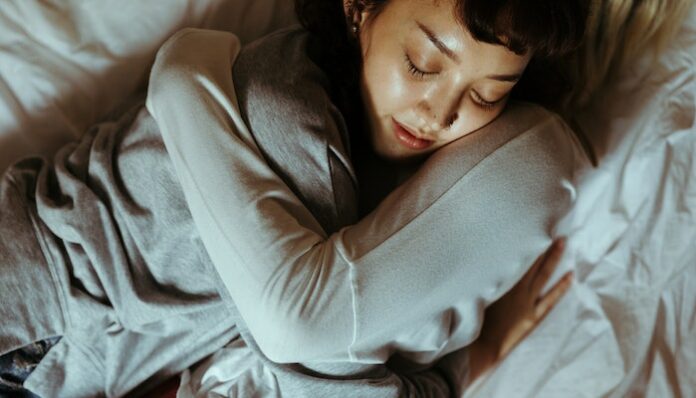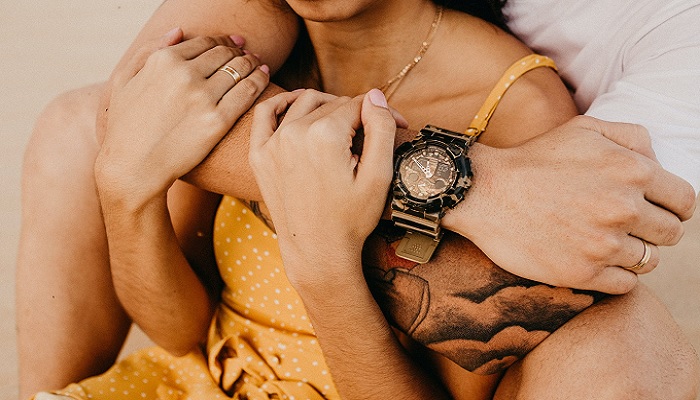
After a night of tossing and turning, you wake up sleepy and grumpy. Restless nights and weary mornings may become more frequent as you get older and your sleep patterns change. In women, it often begins around menopause, when hot flashes and other symptoms keep them awake.
A good night’s sleep makes it easier to begin the next day on the right foot. It is an essential thing we can do for our health. If you’re having trouble sleeping, try these easy changes to enjoy better sleep.
1. Build a Sleep-Friendly Bedroom
If you want better sleep, ensure the bedroom is a relaxing space for sleeping. Is it dark, comfortable, and quiet? Here are some tips to make your bedroom more sleep-friendly.
Consider your sleep habits, like your sleep position, whether you sleep hot or cold, and if your body needs extra support. From there, check to ensure your sheets, pillows, and mattress work best for your body and sleep patterns.
If you live in a noisy street, consider fading outside sound with a fan, earplugs, or white noise machine. Room-darkening curtains also help simulate nighttime if you’re in a room with excess light or work late hours.
Our body temperatures drop a little when we sleep. So turning down the thermostat matches the body’s natural drop and signals it is time to sleep. The best sleeping temperature for adults is 60-67 degrees Fahrenheit.
2. Stick to a Schedule
If your schedule is different on the weekdays and weekends, it’s vital to sleep and wake up at the same time each day. Try to keep your bedtime and mornings manageable by an hour or so. It helps your body’s sleep cycle stay on track.
If you can’t sleep after 20 minutes in bed, try relaxation techniques, like reading or listening to soothing music. Spending too much time in bed to fall asleep might worsen the problem.
3. Exercise Daily
Going for a daily walk won’t just help you lose weight; it will also keep you up less frequently at night. Exercise boosts the effects of natural sleep hormones such as melatonin. Just watch the timing of your workouts. Exercising too close to bedtime may be stimulating. Morning workouts exposing you to bright daylight help the natural circadian rhythm.
4. Avoid Alcohol and Caffeine
Wine and chocolate should be separate if you have a snack before bed. Chocolate contains caffeine, a stimulant. Interestingly, alcohol has a similar impact. It makes you a little sleepy; it’s a stimulant that disrupts sleep during the night. Also, avoid anything acidic (such as citrus fruits and juices) or spicy, which can give you heartburn.
Caffeine has numerous benefits. A single dose may enhance focus, energy, and sports performance. However, caffeine stimulates your nervous system when consumed late in the day. As a result, it may stop the body from naturally relaxing at night.
5. Increase Bright Light Exposure
Our body has a natural time-keeping clock known as circadian rhythm. It affects our brain, body, and hormones, helping us stay awake and telling our body when it is time to sleep. Natural sunlight or bright daylight keeps the circadian rhythm healthy. It improves daytime energy and nighttime sleep quality and duration. Daytime sunny light exposure improves sleep quality and time in people with insomnia.
While most research involves people with severe sleep issues, daily light exposure will help you even if you experience average sleep. If this is not practical, try getting daily sunlight exposure or invest in an artificial bright light device or bulbs.
6. Cut Down on Screen Time
Scrolling through the phone or laptop at the night’s end isn’t as harmless as it might seem. Device backlights may interrupt your body’s release of melatonin. The release of melatonin is the natural way of inducing sleep. Over time, regular electronic use near bedtime may extend the time it takes to fall asleep.
Sleep needs vary, but most healthy adults need between 7-9 hours daily. So if you’re struggling to sleep soundly, some simple changes might help you enjoy better sleep and, ultimately, feel better. If nothing else works, you may also try Kalms night or other sleep aids to get better sleep.
Feature Image by Ketut Subiyanto on Pexels


















